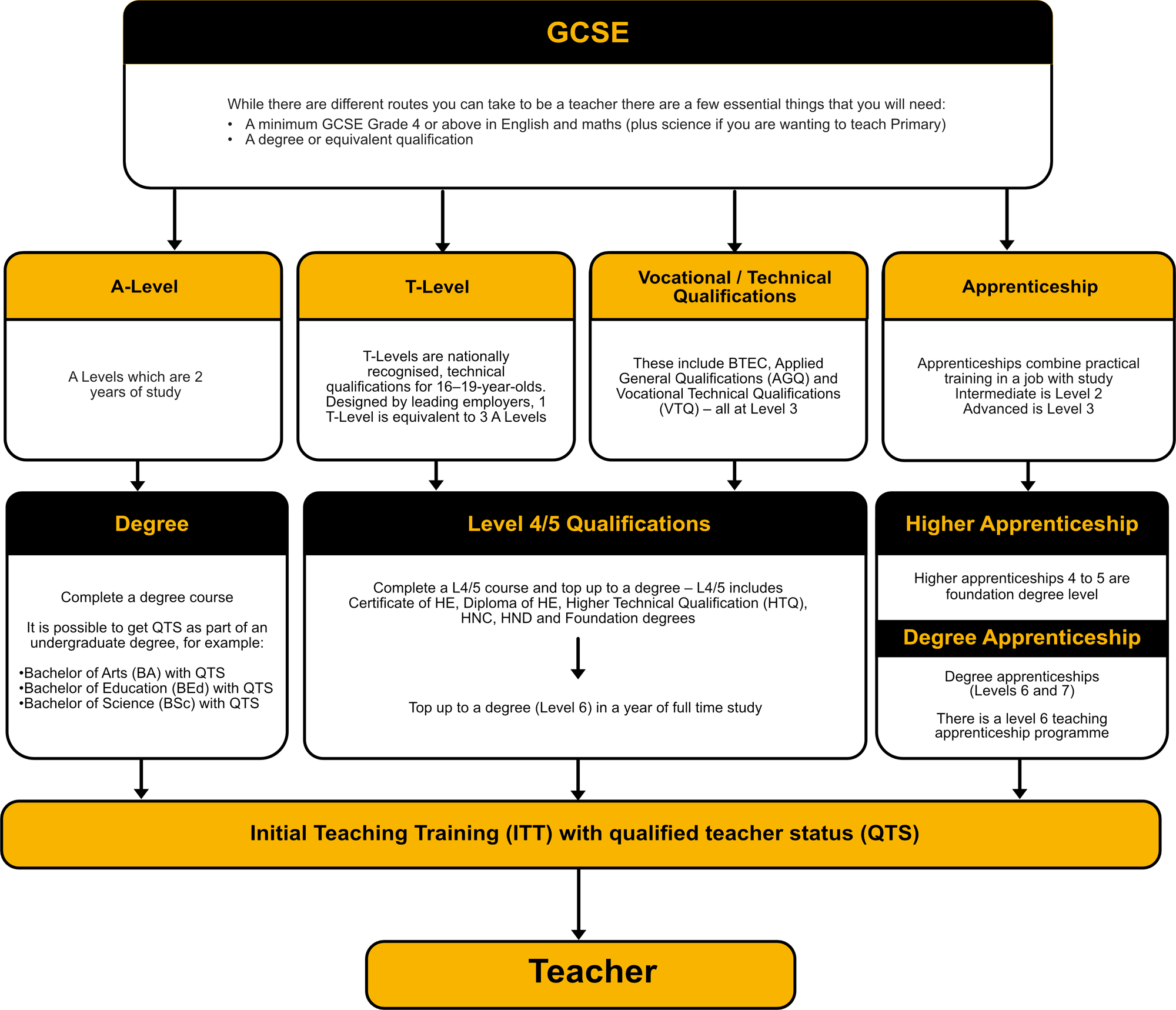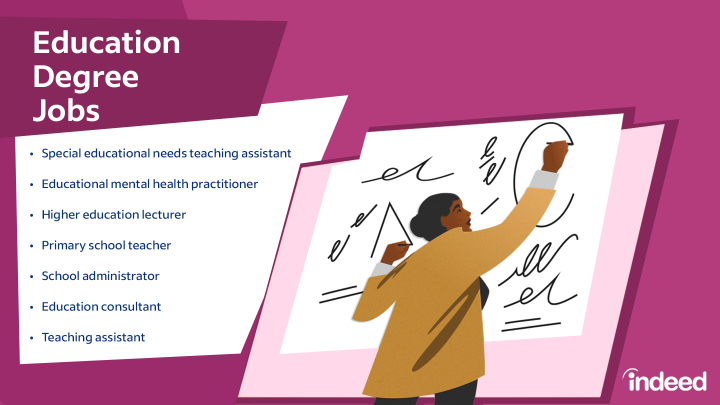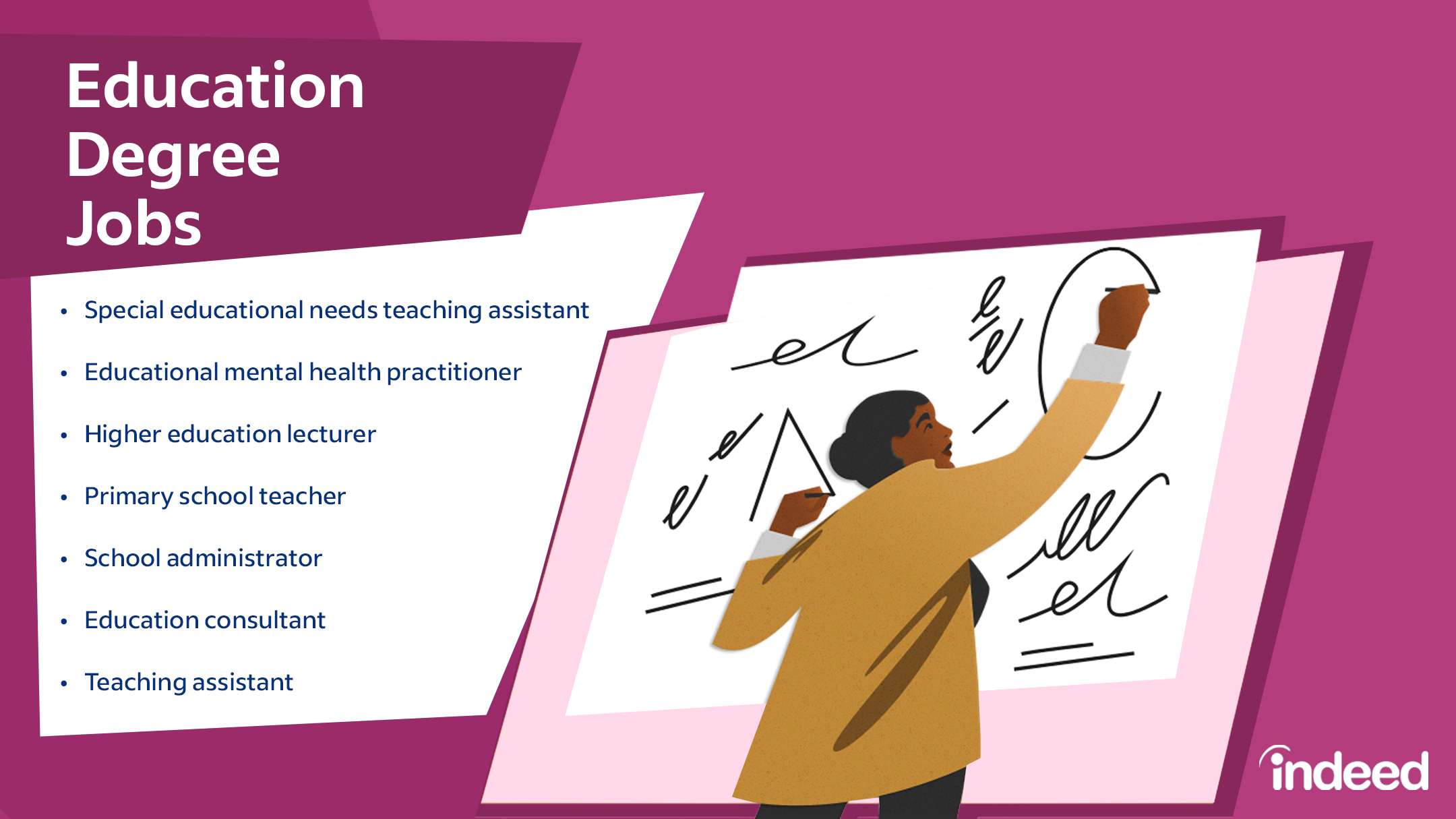With a primary education degree, you can become an elementary school teacher or an educational consultant. Other roles include curriculum designer, educational coordinator, and reading specialist.
Embarking on a career with a primary education degree opens a multitude of diverse and rewarding job options. This degree paves the way for a future shaping young minds as an elementary school teacher where creativity meets foundational instruction. The skills gained are also valuable for positions in educational consulting, where experts advise schools on improving teaching methods and student engagement.
As a curriculum designer, one crafts the educational content that sparks curiosity and supports learning objectives. Those with a keen eye for literacy development may find themselves thriving as reading specialists, playing a critical role in early reading intervention. A primary education degree also equips graduates for roles in educational administration, contributing to effective school management and operations. Each career path allows for a significant impact on the education of young children, steering them toward a lifelong love of learning.
Diverse Careers In Education Beyond Teaching
Holding a Primary Education degree opens doors to many job paths. You are not limited to teaching. Many roles enhance the educational system from behind the scenes. Let’s explore careers that use your skills in innovative ways. [Primary Education Degree.]
Educational Consultant
An Educational Consultant advises schools and teachers. They bring new learning strategies to classrooms. This role optimizes student success and keeps teachers up-to-date.
Primary Education graduates excel here. They understand educational foundations.
- Analyze school programs
- Recommend improvements
- Train educators
They also build better learning environments.
Curriculum Developer
A Curriculum Developer crafts educational programs. They use instructional expertise to create impactful materials.
| Task | Impact |
|---|---|
| Design curricula | Shapes student learning |
| Research new topics | Keeps content fresh |
| Assess results | Ensures effectiveness |
This career blends creativity with pedagogy.
It allows educators to influence learning on a larger scale.
Guidance And Counseling Roles
A primary education degree opens doors to numerous career paths, notably in guidance and counseling roles. These roles are pivotal in shaping young lives and guiding them towards fulfilling futures. With a primary education degree, nurturing students’ academic and social well-being becomes part of your job description. Here’s how you can contribute:
School Counselor
Becoming a school counselor is a profound way to impact children at the primary level. School counselors play a critical role in student development. They address emotional, social, and academic issues. With a primary education degree, you can:
- Create a safe emotional environment for students.
- Help children navigate their school years successfully.
- Work with parents and teachers to support student growth.
Career Advisor For Students
Embarking on the role of a career advisor for students equips you to guide youngsters in discovering their passions and potential career paths. Your expertise in primary education allows you to:
- Analyze students’ strengths and interests.
- Conduct workshops and career fairs.
- Assist in setting achievable career goals.
Stepping Into Administration
A primary education degree opens doors beyond the classroom. Let’s explore how this degree can lead to administrative roles within schools. These positions hold significant responsibility and impact the core of educational systems. Professionals in these roles shape the future of education and manage the overall functions of schools and districts. [Primary Education Degree.]
Principal
Becoming a principal is a popular path for those with a primary education degree. It’s a role that demands strong leadership and a deep understanding of educational policies. Principals work closely with teachers and staff to ensure students receive a quality education.
- Lead school operations
- Implement educational policies
- Manage teaching standards and student performance
- Connect with parents and the community
School District Administrator
A primary education degree can also lead to becoming a school district administrator. This role focuses on the larger picture of education within a district. School district administrators oversee multiple schools, making broad decisions that affect students and staff district-wide.
| Focus Areas | Responsibilities |
|---|---|
| Curriculum Development | Reviewing and improving educational programs. |
| Budget Management | Allocating resources to schools and programs. |
| Staff Supervision | Hiring and evaluating school principals and key staff. |
| Policy Making | Shaping policies that guide school operations. |

Credit: www.topuniversities.com
The World Of Edtech: Primary Education Degree
A Primary Education Degree opens up a universe beyond classrooms.
The education technology sector, or Edtech, is exploding with opportunities.
With technology reshaping education, new roles are emerging for those with a passion for teaching and tech.
Let’s explore some exciting Edtech careers you could dive into.
Instructional Technologist
An Instructional Technologist merges tech with teaching techniques.
This job creates powerful learning experiences. Here’s what you could do:
- Design digital learning materials
- Train teachers on new tech tools
- Help schools choose the best educational tech
Educational Software Developer
As an Educational Software Developer, you make learning fun and accessible.
Your skills help build apps and software that light sparks in young minds. Key tasks include:
- Coding educational games and apps
- Working with educators to meet learning goals
- Updating software for the best learning experience
Advocacy And Policy Making
A primary education degree can lead to influential roles beyond the classroom. Graduates might help shape the future of education itself. In advocacy and policy-making, individuals work to improve educational systems. This often involves research, collaboration, and communication with stakeholders. Careers in this field aim to influence educational policy and practice. Such roles ensure that education systems serve all students well.
Education Policy Analyst
An education policy analyst examines educational policies. They look at how these policies work in schools. Analysts also suggest improvements. The goal is to make education better for every child.
- Research current educational policies
- Study the effects of policies on schools
- Report findings to decision-makers
- Advocate for policy changes based on research
Lobbyist For Educational Change
A lobbyist for educational change fights for better schools. They talk to lawmakers about what schools and teachers need. Their work can lead to new laws that help students.
- Meet with politicians and officials
- Explain the needs of schools
- Push for laws that improve education

Credit: www.youthemployment.org.uk
Community And International Development
A degree in Primary Education opens up more than just teaching roles. Community and International Development are fields bursting with opportunities. Careers in these areas are rewarding. They allow educators to engage with diverse populations. They often facilitate change outside traditional classrooms.
Program Director For Nonprofits
With a Primary Education degree, one can lead and inspire as a Program Director for Nonprofits. This role includes:
-
- Creating educational programs that benefit communities.
- Managing a team of dedicated professionals.
- Fundraising and allocating resources to meet objectives.
Education Officer In Ngos
As an Education Officer in NGOs, one can:
-
- Develop and implement educational strategies.
- Work in diverse environments, often in international settings.
- Help children and adults gain access to education.
Adult Education And Lifelong Learning
Embark on a rewarding path with a Primary Education degree! Adult Education and Lifelong Learning open doors to inspiring roles. Impact lives beyond the traditional classroom. Transform knowledge into growth. Discover exciting job opportunities.
Corporate Trainer
Shape the future of workplaces as a Corporate Trainer. Use your degree to teach skills to adults in the corporate environment. Educate employees and improve their performance. Become pivotal in their career advancement.
- Design training curricula
- Conduct workshops and seminars
- Evaluate learning outcomes
Adult Literacy Teacher
Change lives as an Adult Literacy Teacher. Educate adults who need basic reading and writing skills. Help them achieve personal goals. Offer them a brighter future through literacy.
- Assess individual learning needs
- Create engaging lesson plans
- Build supportive learning environments

Credit: www.indeed.com
Special Education Needs
Embarking on a career in Special Education Needs (SEN) is a fulfilling path. A primary education degree equips you with the skills to support diverse learners. Specialized roles await in the field of SEN, catering to unique learning requirements and fostering inclusive education environments.
Special Education Teacher
With a primary education degree, one can become a Special Education Teacher. This role involves:
- Creating tailored lesson plans
- Adapting curriculum to meet individual needs
- Assessing student progress
- Collaborating with parents and other educators
Special Education Teachers work in varied settings. These range from public schools to specialized institutions. Their impact is crucial in children’s lives, helping each student reach their full potential.
Inclusion Specialist
An Inclusion Specialist ensures all students learn together. This role’s responsibilities include:
- Developing inclusive strategies
- Supporting classroom teachers
- Facilitating accommodations
- Promoting positive classroom environments
The Inclusion Specialist is key in integrating students with diverse needs into mainstream classrooms. They champion equal learning opportunities for every child.
Furthering Professional Growth
An education in primary teaching equips you with skills that spread far beyond the classroom. It provides a foundation for diverse career paths and professional advancement. With a primary education degree, your expertise in facilitating learning, managing groups, and creativity are valuable in many roles.
Continuing Education
Keep growing in your field after your degree. Pursue advanced certifications or a master’s degree. Specialize in areas like educational leadership, special education, or curriculum design to rise in your teaching career. Online courses and workshops can also enhance your skills and keep you updated with the latest teaching methods.
- Specialized Certifications: Gain expertise in areas like ESL or educational technology.
- Master’s Programs: Prepare for roles in administration or policy-making with further studies.
- Professional Workshops: Stay current with teaching strategies and classroom tools.
Transitioning Into A Different Sector
Your degree opens doors to opportunities outside traditional teaching roles. Utilize your skills in communication, organization, and leadership in new sectors. Corporate training, educational consultancy, or roles in educational software companies are options. Explore job roles that value the transferable skills a primary education degree provides.
| Potential New Sectors and Roles | |
|---|---|
| Educational Technology: | Develop or sell innovative learning tools. |
| Corporate Training: | Design and deliver training programs. |
| Nonprofit Education Programs: | Manage or create educational content for communities. |
Starting Your Own Educational Venture
Embarking on an educational venture opens a world full of possibilities. With a Primary Education degree, the journey doesn’t end in the classroom; it can lead to innovative pathways like starting your own business in education. Let’s explore how you can transform your passion for teaching into a successful entrepreneurial endeavor.
Edupreneur
Starting as an ‘edupreneur’ means combining education with entrepreneurship. This venture requires creativity, dedication, and a love for learning. By channeling your expertise into a unique business model, you can offer education-related products or services. This might include developing educational apps, creating curriculum materials, or even launching a child-friendly YouTube channel. As an edupreneur, you impact the educational landscape while building a brand that reflects your teaching philosophy.
Tutoring Business Owner
Owning a tutoring business is a natural step for education degree holders. Quality tutors are in high demand, and running your service offers flexibility and personal satisfaction. Establishing a tutoring business allows you to specialize in subjects you’re passionate about or to cater to specific needs, such as test preparation or learning disabilities. With the right strategies, your tutoring business can grow, helping students achieve their goals and reinforcing your role as an educator and a business owner.
Freelancing And Consultation
Thinking of ways to use your Primary Education Degree? Step into the world of freelancing and consultation! This offers vast opportunities. You can set your schedule, pick projects you love, and fill a need for expert advice.
Freelance Educational Writer
A Freelance Educational Writer crafts engaging content for diverse audiences. Parents, students, and educators look for valuable insights. Use your skills to write articles, textbooks, and lesson plans. There’s a huge demand for fresh, creative educational material.
- Develop curriculum: Create learning experiences for students.
- Write children’s books: Bring stories to life for young readers.
- Craft blog posts: Share teaching strategies with peers.
Create your brand. Network on platforms like LinkedIn. These actions will help clients find you.
Independent Education Consultant
Become an Independent Education Consultant. Use in-depth knowledge to shape future education. Work with schools, educational startups, or parents. Your experience is your ticket to advising others.
| Service | Details |
|---|---|
| Custom Workshops | Create interactive sessions for teachers. |
| School Program Design | Develop cutting-edge educational programs. |
| Parent Coaching | Guide parents on best educational practices. |
Build trust. Stay updated with the latest trends. Offer innovative solutions. These steps make you stand out in the consulting field.
Harnessing Media For Education
Harnessing Media for Education: A primary education degree opens the door to an array of exciting opportunities. One such path is in the media sector, specifically tailored to educate and inspire young minds. This field is not just limited to traditional classroom settings. Let’s explore careers that blend creativity, learning, and technology.
Educational Content Creator
Educational content creators are revolutionaries in learning. They transform complex lessons into fun, digestible content. Ideal for those with a knack for storytelling and a deep understanding of children’s needs. These creators design materials across multiple formats:
- Interactive e-books
- Educational apps
- Online courses
- Visual aids for classrooms
They often work with educators and psychologists. The goal is to make content both engaging and educational. Skills in graphic design, animation, or video editing are a bonus in this field.
Children’s Television Producer
Imagine shaping the TV shows that inspire future generations. Children’s television producers craft stories that entertain while teaching valuable lessons. Key responsibilities include:
| Task | Description |
|---|---|
| Story Development | Craft engaging storylines that also teach. |
| Casting | Select actors who resonate with kids. |
| Production Oversight | Ensure quality in every aspect of the show. |
| Compliance | Adhere to broadcast standards for children’s content. |
This role requires a mix of creative vision and management skills. Producers collaborate with writers, animators, actors, and educators. They ensure the final product is both enjoyable and enriching for young audiences.
Frequently Asked Questions
Is A Bachelor’s In Elementary Education Worth It?
A bachelor’s in elementary education is valuable for pursuing a teaching career in primary schools, offering pedagogical knowledge and classroom skills. It often meets the requirements for teaching certification.
What Is The Highest Paying Job In Education?
Superintendents hold the highest-paying positions in education, typically earning more than principals and academic deans. Their salaries often surpass six figures, varying based on district size and location.
Is An Educational Studies Degree Worth It?
An educational studies degree can be valuable, opening doors to diverse careers in teaching, administration, and educational policy, dependent on individual career goals and market demand.
What Is The Fastest Way To Become A Teacher In Texas?
The fastest way to become a teacher in Texas is to obtain alternative certification through an approved program while holding a bachelor’s degree.
Conclusion
Embarking on a career with a primary education degree opens a multitude of doors beyond the classroom. Whether your passion lies in educational policy, instructional design, or community engagement, the skills you’ve honed are invaluable. Embrace the versatility of your qualifications and let it propel you into a fulfilling future where your impact extends far and wide.
Let’s redefine the reach of educators together.

I’m based in the USA, Canada, Australia, and the UK—four vibrant countries with rich educational landscapes and diverse news ecosystems.
Feel free to adjust and personalize this introduction to reflect your unique voice and experiences. Happy writing! 📝✨

